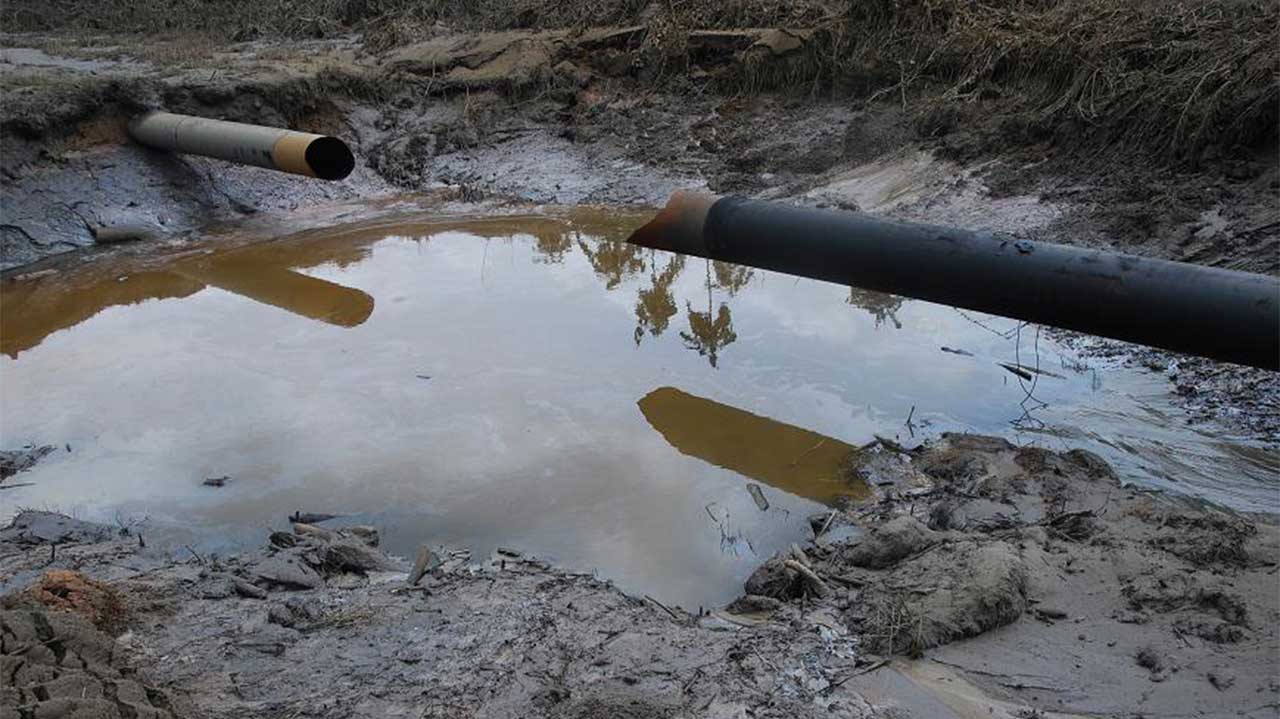- Pipeline Vandalism Rises by 42.9% in One Month
The Nigerian National Petroleum Corporation on Tuesday condemned the increasing incidents of pipeline vandalism across the country.
It stated that in October 2018, its pipeline network suffered a 42.9 per cent increase in the incidents of pipeline vandalism compared to the previous month during the year.
NNPC’s Group General Manager, Group Public Affairs Division, Ndu Ughamadu, said in Abuja that the corporation recorded 219 pipeline vandalised points in the month under review, compared to 125 incidents it suffered in September of the same year.
Ughamadu said the findings that were captured in the NNPC Monthly Financial and Operations Report for October 2018 revealed that among the breaches, four vandalised pipeline points failed to be welded and one point was ruptured.
The report stated that cases of vandalism of pipeline facilities were high along Ibadan-Ilorin and Aba-Enugu axes, accounting for 81 (40 per cent ) and 39 (18 per cent ) vandalised points respectively.
Ughamadu said that despite the challenge posed by pipeline vandalism, the NNPC kept an eye on Premium Motor Spirit stock level to ensure zero fuel queues across the nation.
The NNPC monthly report also stated that Nigeria earned $640.35m from the export of crude oil and gas in October.
The report said the total export receipt of $640.35m recorded in October was higher than the $527.7m logged in September, adding that the receipt showed that $450.44m accrued from crude oil sale with gas and miscellaneous receipts standing at $173.92 and $15.99m respectively.
In the downstream sector, the Petroleum Products Marketing Company, a downstream subsidiary of NNPC, posted a receipt of N231.33bn from the sales of white products in October, compared with N150.25bn sold in September.
The total revenue generated from the sales of white products for the period October 2017 to October 2018 stood at N2.684tn, where PMS contributed about 88.32 per cent of the total sales value of N2.371tn.
A total of 1.66 billion litres of petrol, translating to 55.50 million litres per day, were supplied for the month under review.
The report noted that out of the 1,066.88 million standard cubic feet of gas per day that was supplied to the domestic market in October 2018, about 627.33mmscfd of gas representing 58.81 per cent was supplied to gas-fired power plants to generate an average power of about 2,349 megawatts, compared with the September 2018 figure where an average of 615mmscfd was supplied to generate 2,303MW.
The balance of 439.35mmscfd or 41.19 per cent was supplied to other industries.

 Forex3 weeks ago
Forex3 weeks ago


 Naira2 weeks ago
Naira2 weeks ago
 Billionaire Watch2 weeks ago
Billionaire Watch2 weeks ago




 Naira2 weeks ago
Naira2 weeks ago




 Naira2 weeks ago
Naira2 weeks ago




 Naira1 week ago
Naira1 week ago




 Naira3 weeks ago
Naira3 weeks ago




 Naira4 weeks ago
Naira4 weeks ago






















